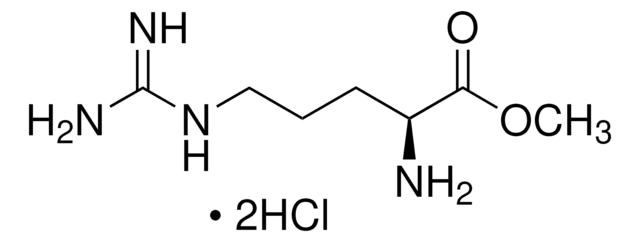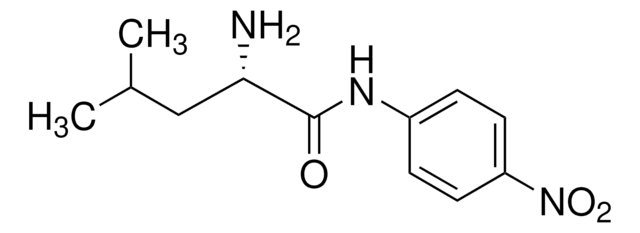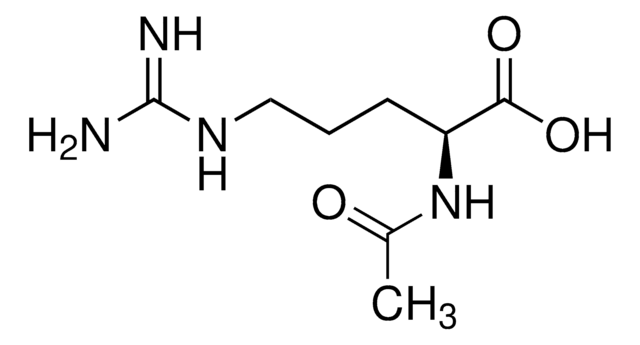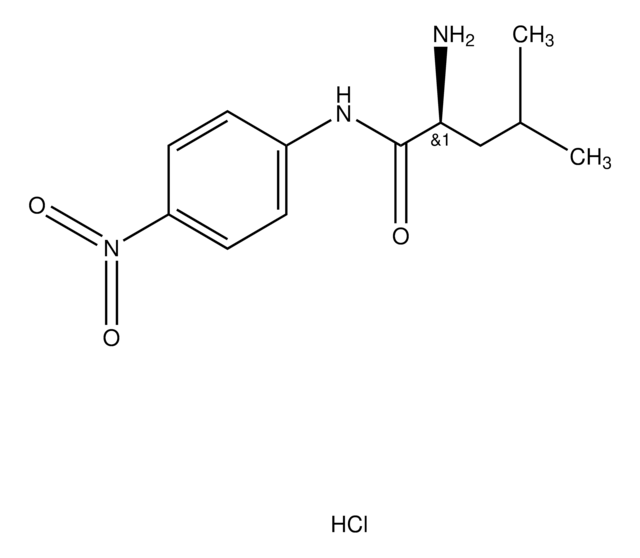A3913
L-Argininamide dihydrochloride
≥98%, suitable for ligand binding assays
About This Item
Recommended Products
product name
L-Argininamide dihydrochloride,
Assay
≥98%
Quality Level
form
powder
technique(s)
ligand binding assay: suitable
color
white to off-white
storage temp.
−20°C
SMILES string
Cl.N[C@@H](CCCNC(N)=N)C(N)=O
InChI
1S/C6H15N5O.ClH/c7-4(5(8)12)2-1-3-11-6(9)10;/h4H,1-3,7H2,(H2,8,12)(H4,9,10,11);1H/t4-;/m0./s1
InChI key
BPQLYFCEVVKLLX-WCCKRBBISA-N
Application
Biochem/physiol Actions
Signal Word
Danger
Hazard Statements
Precautionary Statements
Hazard Classifications
Acute Tox. 4 Oral - STOT SE 1
Target Organs
Eyes
Storage Class Code
6.1C - Combustible acute toxic Cat.3 / toxic compounds or compounds which causing chronic effects
WGK
WGK 2
Flash Point(F)
Not applicable
Flash Point(C)
Not applicable
Personal Protective Equipment
Regulatory Listings
Regulatory Listings are mainly provided for chemical products. Only limited information can be provided here for non-chemical products. No entry means none of the components are listed. It is the user’s obligation to ensure the safe and legal use of the product.
ISHL Indicated Name
Substances Subject to be Indicated Names
ISHL Notified Names
Substances Subject to be Notified Names
JAN Code
A3913-BULK:
A3913-25G:
A3913-VAR:
A3913-5G:4548174015988
A3913-1G:4548174015971
Certificates of Analysis (COA)
Search for Certificates of Analysis (COA) by entering the products Lot/Batch Number. Lot and Batch Numbers can be found on a product’s label following the words ‘Lot’ or ‘Batch’.
Already Own This Product?
Find documentation for the products that you have recently purchased in the Document Library.
Our team of scientists has experience in all areas of research including Life Science, Material Science, Chemical Synthesis, Chromatography, Analytical and many others.
Contact Technical Service










